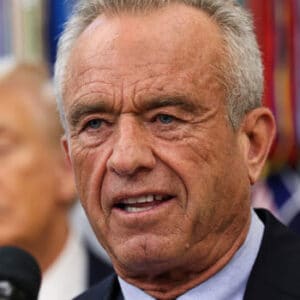Senior White House policy adviser Stephen Miller reportedly got into a heated argument with CNN correspondent Kaitlan Collins during a press briefing in the Oval Office, which was a shocking and unexpected development.
Witnesses have described the exchange as personal and intense, and it has generated a lot of conversation about the relationship between the press and the current administration.
The incident started when Collins asked a question about the recent deportation of Kilmar Abrego Garcia, a Salvadoran national, during a standard press briefing. The Trump administration acknowledged Garcia’s deportation as a “administrative error,” which had already caused controversy. Significant media attention was generated as the situation developed into a diplomatic conflict between the United States and El Salvador.
Collins asked about the U.S. government’s position on the issue, specifically regarding its engagement in internal affairs in El Salvador. Miller, who was clearly upset, shot back, calling Collins conceited and claiming that her line of inquiry was typical of American media overreach.
He implied that the media’s scrutiny was unjustified by emphasizing that the United States had no right to dictate how El Salvador should treat its citizens.
Collins was apparently surprised by the ferocity of Miller’s response, and the altercation ended in stunned silence. Since then, the incident has gone viral, sparking discussions about press freedom, government openness, and how public officials should behave when speaking to the media.
The difficulties journalists encounter in holding public officials accountable are highlighted in this episode, which also highlights the ongoing tensions between the Trump administration and the media. It also calls into question the administration’s communication tactics used at press briefings and how it handles delicate diplomatic matters.
As the narrative progresses, it provides a moving illustration of the intricate relationship between public servants and the media as well as the significance of upholding civil and productive discourse in public.





